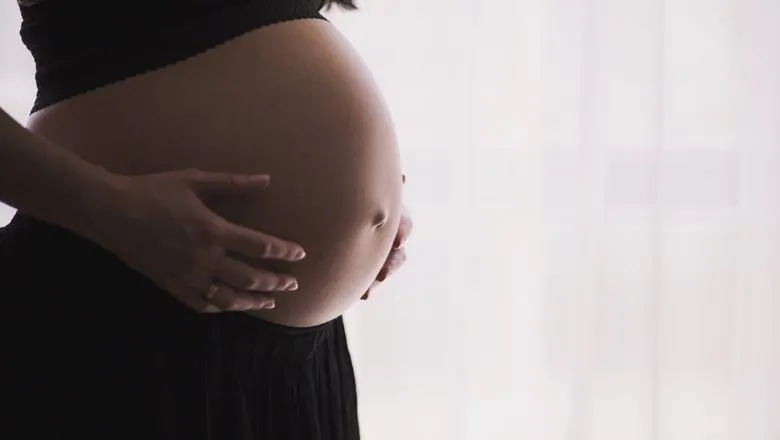"Our findings will be reassuring for pregnant mothers who are worried that anxiety caused by the COVID-19 pandemic could be transferred on to their children."
Dr Yasmin Ahmadzadeh, King's IoPPN
24 June 2021
Anxiety during pregnancy does not pass from mother to baby, finds new King's study
Mothers who experience anxiety during pregnancy do not pass on similar emotional problems to their children, but later exposure to an anxious parent might have an impact.

Mothers who experience anxiety during pregnancy do not pass on similar emotional problems to their children, according to a review of existing research by King’s College London’s Institute of Psychiatry, Psychology, & Neuroscience (IoPPN).
The research, which has been published in the Journal of the American Academy of Child and Adolescent Psychiatry, has however suggested that exposure to an anxious parent after birth might have an impact, even after accounting for the role of genetics.
Researchers know that anxiety runs in families; children of anxious parents are at higher risk for developing similar problems themselves. However, it is unclear whether parents directly influence the development of emotional problems ‘environmentally’ as their child grows up (or vice versa), or whether anxious parents pass on a genetic predisposition for anxiety, or both.
The researchers reviewed eight existing studies from Europe and the US published between 2010 and 2019 on the association between parental anxiety during pregnancy and emotional problems in their children, with a particular focus on studies which accounted for the role of genetics in how anxiety is passed on.
Data from three studies (which assessed children between the ages of 0.5 to 10 years old) showed that exposure to maternal anxiety during pregnancy was not associated with emotional problems in children.
Meanwhile, six studies (which assessed a broader age range of children between 0.75 to 22 years old) on postnatal anxiety found a modest association between postnatal anxiety and later emotional problems in children.
Dr Yasmin Ahmadzadeh, lead author from King’s IoPPN said,
“While we did find some evidence that postnatal exposure to parent anxiety may cause later emotional problems in children, it isn’t possible to tell whether this impact is significant and long-lasting. Once children are born, how they become anxious is far too complex for us to make broad assumptions. We would encourage clinicians to take a holistic view, which considers the influence of genetically inherited traits alongside the shared family environment.
“Our results also highlight a striking need for new research. Most of the evidence we looked at focused on mother-child relationships, whereas future research should consider the role of fathers, as well as siblings and extended family members.”
“It is important to understand the genetic and environmental contribution of these factors, in order to develop better ways of preventing or managing emotional problems in children.”
Systematic Review and Meta-analysis of Genetically Informed Research: Associations Between Parent Anxiety and Offspring Internalizing Problems (doi.org/10.1016/j.jaac.2020.12.037) (Yasmin I. Ahmadzadeh, PhD, Tabea Schoeler, PhD, Meredith Han, BSc, Jean-Baptiste Pingault, PhD, Cathy Creswell, PhD, Tom A. McAdams, PhD) was published in the Journal of the American Academy of Child and Adolescent Psychiatry.
For more information, please contact Patrick O'Brien (Senior Media Officer)

